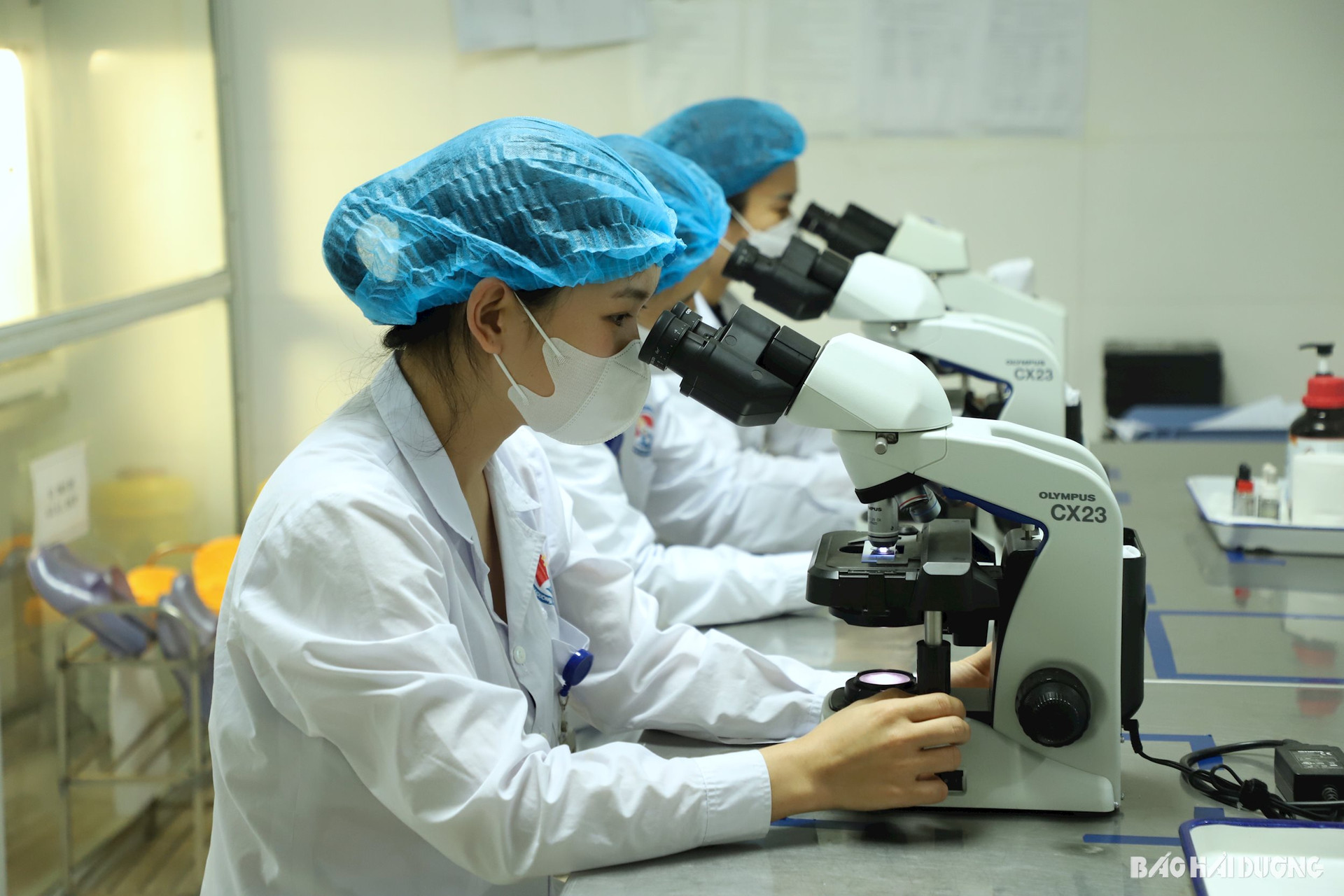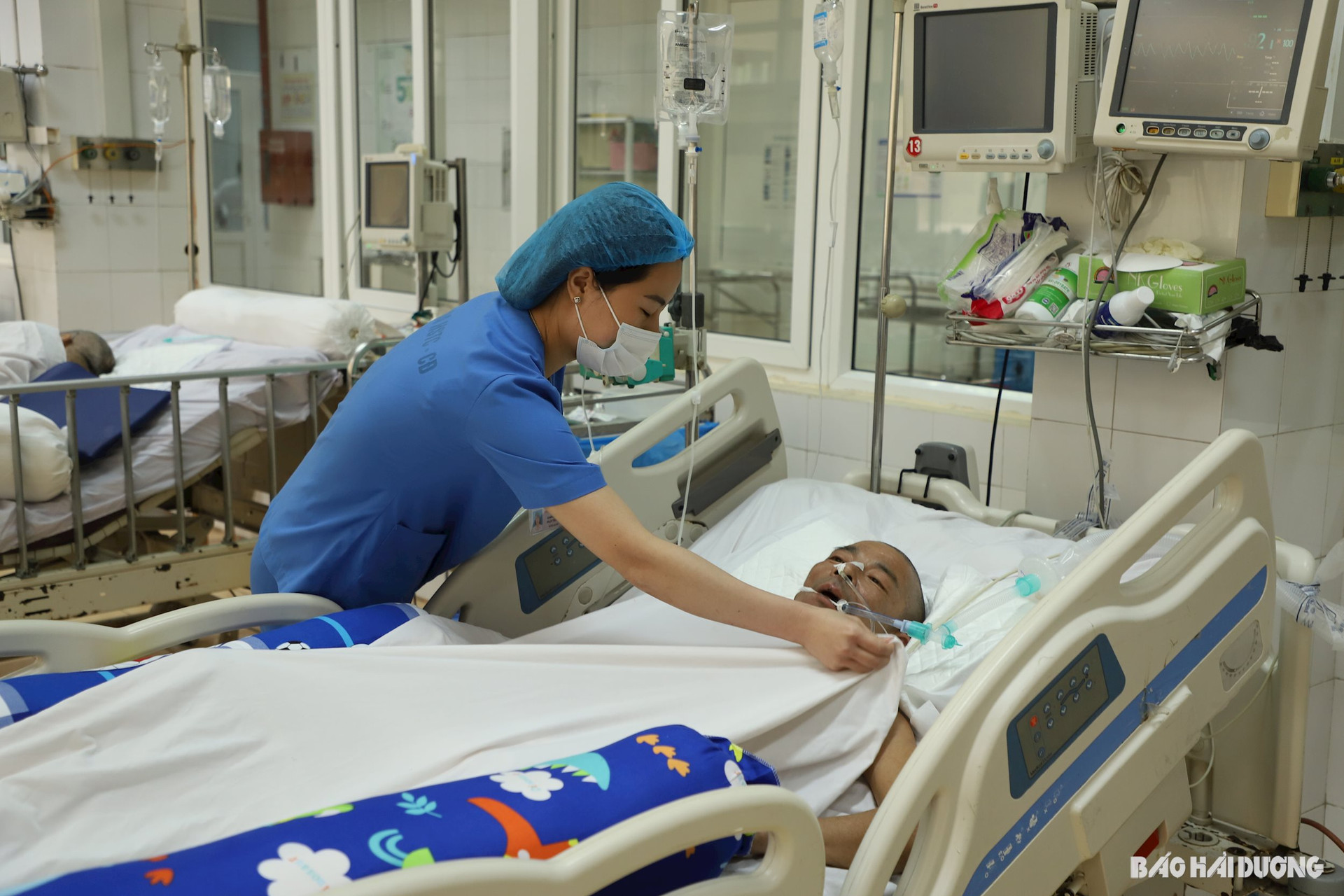The average salary of officials, civil servants and public employees is expected to increase by about 30% from July 1, 2024. Financially independent hospitals in Hai Duong will face many additional challenges, requiring early adjustment of medical examination and treatment service prices.

Expenditure increased sharply
According to the press, Minister of Home Affairs Pham Thi Thanh Tra said that according to the salary reform plan, from July 1, the average salary of officials, civil servants and public employees is expected to increase by about 30% (including basic salary and allowances).
For provincial hospitals in Hai Duong that are implementing group 2 financial autonomy (self-guaranteeing regular expenditures equal to or greater than 100%), increasing the minimum wage means that expenses will increase sharply.
According to the current minimum wage (VND1.8 million/month), Hai Duong General Hospital has to spend more than VND9 billion per month on salaries, allowances, social insurance, health insurance, unemployment insurance, and union fees for its staff and employees. From July 1, if the average salary increases by about 30%, the hospital will have to spend an additional VND3 billion.
It is expected that Hai Duong Lung Hospital will need an additional 1.2 billion VND to pay the prescribed expenses if the general salary of cadres, civil servants and public employees increases by 30% from July 1. Currently, the salary, allowances... that this hospital is paying monthly to 316 cadres, civil servants and employees is about 4 billion VND.
Every month, Hai Duong Rehabilitation Hospital has to spend about 1.7 billion VND on salaries, allowances... for 232 cadres, civil servants and workers. This number is expected to increase to about 2.2 billion VND from July 1.
However, the financially autonomous provincial hospitals of group 2 do not stop at paying salaries and allowances for cadres, civil servants, and employees, but also pay for electricity, water, environmental sanitation fees... Every month, these expenses also cost a significant amount of money for the units.
According to regulations, public service units that are financially autonomous must ensure their own resources to implement salary reform policies.
However, research shows that the revenue of provincial hospitals in Hai Duong is currently only enough to cover regular operations. "If the average salary increases by 30%, we do not know where to get the money to pay," said Dr. Nguyen Van Luu, Director of Hai Duong Lung Hospital.
Dr. Nguyen Thi Lieu, Director of the Provincial Rehabilitation Hospital, said that the hospital's revenue from medical services is insignificant, and has not saved much for salary reform. That is not to mention the cost of maintaining, repairing, and upgrading equipment to better meet the needs of the people.
The Provincial General Hospital currently has more than 16 billion VND in "salary reserve". If the average salary increases by 30%, this amount will only be enough to pay officials, civil servants and workers for about 5 months.
Early adjustment of medical examination and treatment service prices

According to Mr. Pham Van Dien, Head of Finance and Accounting Department of the Provincial General Hospital, the leading solution to solve the above challenge is to adjust the price of medical examination and treatment services to suit reality.
Implementing Circular 22/2023/TT-BYT dated November 17, 2023 of the Ministry of Health, level 2 self-financed medical facilities in Hai Duong are collecting medical examination and treatment service prices including direct costs and salaries according to the basic salary level of 1.8 million VND (for those who have participated in health insurance) and 1.49 million VND (for those who have not participated in health insurance). When the State regulates the new salary level, the method of calculating medical examination and treatment service prices must change accordingly. If the price of this service does not increase in time, it means that the state budget will have to compensate. This goes against the policy of transferring the budget directly allocated to hospitals to support people participating in health insurance as proposed by the Government.
Agreeing with Mr. Dien, many health managers in the province also proposed that the Provincial People's Council soon regulate specific prices for medical examination and treatment services on demand at provincial hospitals in accordance with the new situation. In fact, the Provincial People's Council has regulated this price but it still follows the basic salary of 1.49 million VND, not calculated according to the current basic salary of 1.8 million VND. In the future, when the average salary increases, it is proposed that the province should issue prices for medical examination and treatment services on demand to ensure correct and sufficient calculation so that financially autonomous hospitals have enough resources to maintain operations.
DAWN